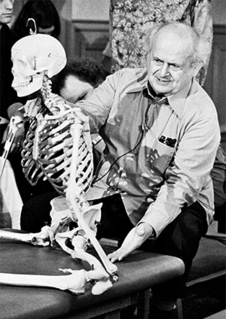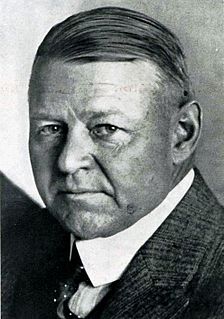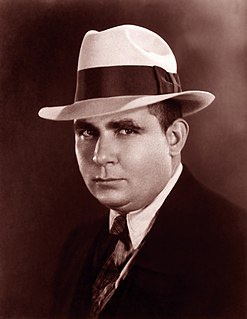A Quote by Charles Babbage
In England, the profession of the law is that which seems to hold out the strongest attraction to talent, from the circumstance, that in it ability, coupled with exertion, even though unaided by patronage, cannot fail of obtaining reward.
Related Quotes
If I hold a twenty pound weight, I cannot detect a fly landing on it because the least detectable difference in the stimulus is half a pound. On the other hand, if i hold a feather, a fly landing on it makes a great difference. Obviously then, in order to be able to tell the differences in exertion one must first reduce the exertion. Finer and finer performance is possible only if the sensitivity, that is, the ability to feel the difference is improved.
I feel that talent means little unless coupled with an insatiable desire to give an excellent personal demonstration of ability...talent must be in company with a capacity for unlimited effort which provides the power that eventually hurdles the difficulties that would frustrate lukewarm enthusiasm.
Our civility, England determines the style of, inasmuch as England is the strongest of the family of existing nations, and as we are the expansion of that people. It is that of a trading nation; it is a shopkeeping civility. The English lord is a retired shopkeeper, and has the prejudices and timidities of that profession.
Perhaps the chief cause which has retarded the progress of poetry in America, is the want of that exclusive cultivation, which so noble a branch of literature would seem to require. Few here think of relying upon the exertion of poetic talent for a livelihood, and of making literature the profession of life. The bar or the pulpit claims the greater part of the scholar's existence, and poetry is made its pastime.
We cannot live in peace without Law. And though law cannot be perfect, it may be just if it is written in ignorance of the identity of the claimants and applied equally to all. Then it is a possession not only of the claimants but of the society, which may now base its actions upon a reasonable assumption of the law?s treatment.
Ignorance of the law of irreducibility was no excuse. I could no longer excuse myself with the claim that I didn't know the law -- for knowledge of self and of the world is the law that, even though unattainable, cannot be broken, and no one can excuse himself by saying that he doesn't know it. . . . The renewed originality of the sin is this: I have to carry out my unknowing, I shall be sinning originally against life.
Science in England is not a profession: its cultivators are scarcely recognised even as a class. Our language itself contains no single term by which their occupation can be expressed. We borrow a foreign word [Savant] from another country whose high ambition it is to advance science, and whose deeper policy, in accord with more generous feelings, gives to the intellectual labourer reward and honour, in return for services which crown the nation with imperishable renown, and ultimately enrich the human race.
In legal parlance, that is called 'the rational person test,' ... That's where somebody else says, 'Even though we have no idea what this person would want in this circumstance in which they cannot themselves tell us what they want, a 'rational' person - meaning, myself - in that circumstance would want to die.' So you move very quickly from so-called voluntary euthanasia to involuntary euthanasia. These legal and medical developments are not simply hypothetical They're in the courts right now.
We're talking about a militant terrorist situation, which I believe it isn't a widespread thing, but it is enough that we need to address, and we have been addressing it. My thoughts are these, first of all, Dearborn, Michigan, and Frankford, Texas are on American soil, and under constitutional law. Not Sharia law. And I don't know how that happened in the United States. It seems to me there is something fundamentally wrong with allowing a foreign system of law to even take hold in any municipality or government situation in our United States.
I regard it as a duty which I owed, not just to my people, but also to my profession, to the practice of law, and to the justice for all mankind, to cry out against this discrimination which is essentially unjust and opposed to the whole basis of the attitude towards justice which is part of the tradition of legal training in this country. I believed that in taking up a stand against this injustice I was upholding the dignity of what should be an honorable profession.







































